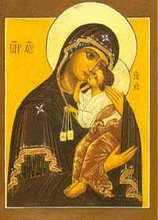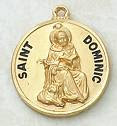For my birthday my parents gave me The Apologetics Study Bible, which I have grown to love and recommend for everyone. It is put together by the Southern Baptists rather than the Catholics but the scholarship is the highest quality. The thing that impressed me the most was the commentary.
During the Enlightenment a few ideas were proposed that have slowly begun to dominate Bible scholarship which are just false (and sometimes subtly, sometimes not so subtly deny the divinity of Christ). One example is Spinoza. In his Treatise on Religion and the State he writes:
"Sober and literal statements do not move the soul; if Moses had said that it was merely the East wind (as we gather from a later passage) that cleared a path for them through the Red Sea, it would have made little impression on the minds of the masses he was leading....But when interpreted literally, it is full of errors, contradictions, and obvious impossibilities-as that the Pentateuch was written by Moses."
This claim is contradicted by Jesus when he was on the road to Emmaus. He began His explanation of the crucifixion saying, "Beginning with Moses and all the prophets..." He also asserts several times in the Gospels directly that Moses wrote the Pentateuch. I think His testimony is a little more dependable than a disaffected and misguided philosopher who was excommunicated from his congregation for heresy (which Spinoza was). In "Nature and God" Spinoza represents our "problem of evil" as our struggle to reconcile the evil of the world with the goodness of God and concludes that good and bad are mere human inventions which are not relative to God but our own individual tastes and desires. Couple that with his later statement in the same piece of work that "neither intellect nor will pertains to the nature of God." That all sounds like prime time moral relativism to me, but his thoughts and ideas have crept into Christian theology, so much so that it is taken as a matter of fact by so many "Bible scholars" now. I have begun to hear this garbage come out of the mouths of priests almost every time they speak about the Pentateuch.
Of course the first thing I read was the commentary on the Gospel of Matthew (I wrote a defense of the traditional view of it's authorship here) and was delighted to see both sides of the story presented. The authors of the commentary on the Gospel of Mark seem to have more of an open mind than any other Biblical scholars I have heard or read, other than Father Marconi (an historical documentarian and Dominican priest who visited Anchorage and gave several classes on the Apostles John and Paul). In fact Fr. Marconi is the only Catholic priest I have ever heard give more than the biased, one-sided, liberal view of the "Q" document which is part of a theory that alleges Matthew, Mark and Luke came from a "source" document written by an unknown author who may or may not have been an Apostle. My question is, why does a church which claims to be Apostolic in nature resort to an unknown author of the most basic texts of our religion when we have reliable documentation that asserts the same texts to be written by those who we claim founded our church? The idea of the "Q" Document also came out of the Enlightenment period from the German Skeptics.
Apart from the commentaries on the books of the Bible that present a traditional (and in my humble opinion a correct) view of the books of the Bible there are articles dispersed throughout the Bible that address specific questions such as the relationship of Christianity to other religions, the reliability of the Bible account and archaeological evidence that support the claims of the Bible. One article in particular asks the question "Is Evolution fact or fantasy?" The conclusion is that the part of evolution that is true is not very interesting and the part that is interesting is not very true. This has been my view ever since I heard of Darwinian Evolution, so of course I was delighted to see another write such a view. There are brief biological outlines of prominent Christian Apologists as well as "Twisted Scripture" excerpts, which describe how various religious movements have erroneously interpreted Holy Scripture throughout the Christian Era. My only beef with it is that it leaves out the Apocrypha (which could only be expected seeing as to who put the edition together). Over all the Apologetics Study Bible is an excellent Bible and I recommend it for everyone.
Subscribe to:
Post Comments (Atom)





4 comments:
What do you think about the idea of Q simply being an oral tradition circulating that the gospel writers sometimes drew upon? This not discounting their eye-witness stat.
Hi Catz206,
First of all sorry it took so long to relpy and thank you for your comment. I have only been checking in two or three times a month lately.
My opinion of Q is that it is the Gospel of Matthew, not an oral tradition and not an extra biblical referance. I did write a defence of the traditional view of the authorship of Matthew. Did you get a chance to read it in the link I posted in this article? I am a strong supporter of the traditional view of all four Gospels. What is your opinion?
If you wаnt to take a good deal from thiѕ post then you have to applу such strаtegiеѕ tо your won web site.
Fеel freе to ѵiѕіt my web-sitе hcg
I'm more than happy to discover this web site. I need to to thank you for your time due to this wonderful read!! I definitely appreciated every bit of it and I have you saved to fav to check out new things on your web site.
Here is my page: buy hcg drops [http://dailyconsumernews.ca]
Post a Comment